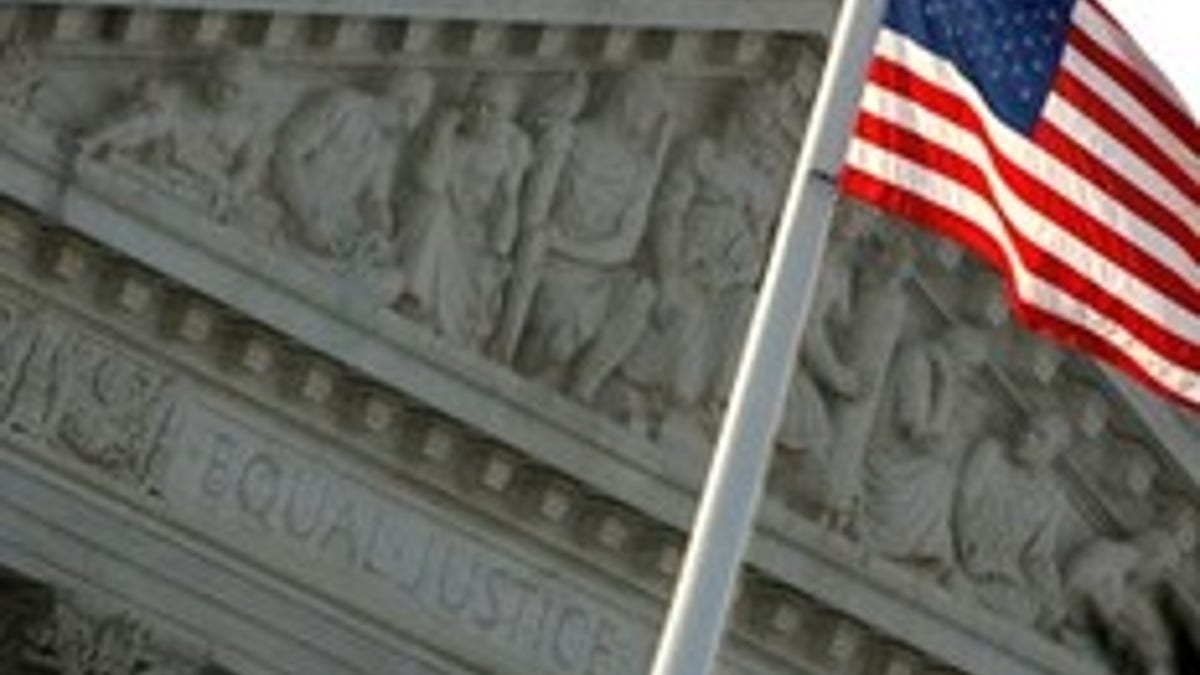
WASHINGTON - AUGUST 07: The U.S. flag flies in front of the West Pediment of the Supreme Court building on August 7, 2009 in Washington, DC. Judge Sonia Sotomayor will be sworn in as the 111th justice of the Supreme Court on Saturday. (Photo by Chip Somodevilla/Getty Images) (2009 Getty Images)
The First Amendment prohibits Congress from abridging the freedom of speech. The reason the Amendment refers to speech as "the" freedom of speech is a recognition by the Framers that the right to speak freely precedes the existence of the U.S. as a country. The Framers recognized it as a natural right ("...endowed by their Creator with certain inalienable rights..."), which comes to all persons by virtue of our humanity. The right to speak freely does not come from the government, which the Big Government folks claim; it is an indelible aspect of our humanity. The Supreme Court has endorsed the concept of the natural, as opposed to governmental, origins of this right, and hence, even though the First Amendment only prohibits "Congress" from abridging the freedom of speech, the Court has ruled that no one in any government-from a school janitor to a state governor, from a board of education to a local cop, from the courts to the Congress to the President-may interfere with speech.
Because speech can startle and offend, as well as enlighten and illuminate, the courts have held that it requires breathing room. Stated differently, no one in the government-any government-may impose a burden on the exercise of speech. That means that the government may not require a license, demand permission, or intimidate any speakers. It may not punish speech, no matter what the speech asks. When the Nixon administration created the "Cointelpro" and"Houston" plans in the 1970s, it used undercover FBI, CIA, and civilian-garbed military to photograph and record the faces and voices of anti-war protestors. Nixon claimed that he needed the records of this for national security purposes. He argued to David Frost, after he had resigned the Presidency, that in case of domestic upheaval, his government would know who to arrest.
The Supreme Court rejected the idea that the First Amendment permits the government to make and keep a record of the faces and voices and ideas of its domestic political opponents. The Court called this "chilling" the right to speak freely; in other words, denying it the breathing room that free speech requires. The whole purpose of the First Amendment, the Court wrote, is to encourage-not discourage-open, broad, robust political debate, and any inhibition, real or threatened, that comes from the government is unconstitutional.
In direct response to Cointelpro and Houston, Congress enacted the Privacy Act. Among many other protections, it specifically prohibits the President or anyone in his name from making or keeping records of any persons' use of speech. The constitutional rule is "All innocuous speech is absolutely protected. And all speech is innocuous when there is time for more speech to address the same matter."








































